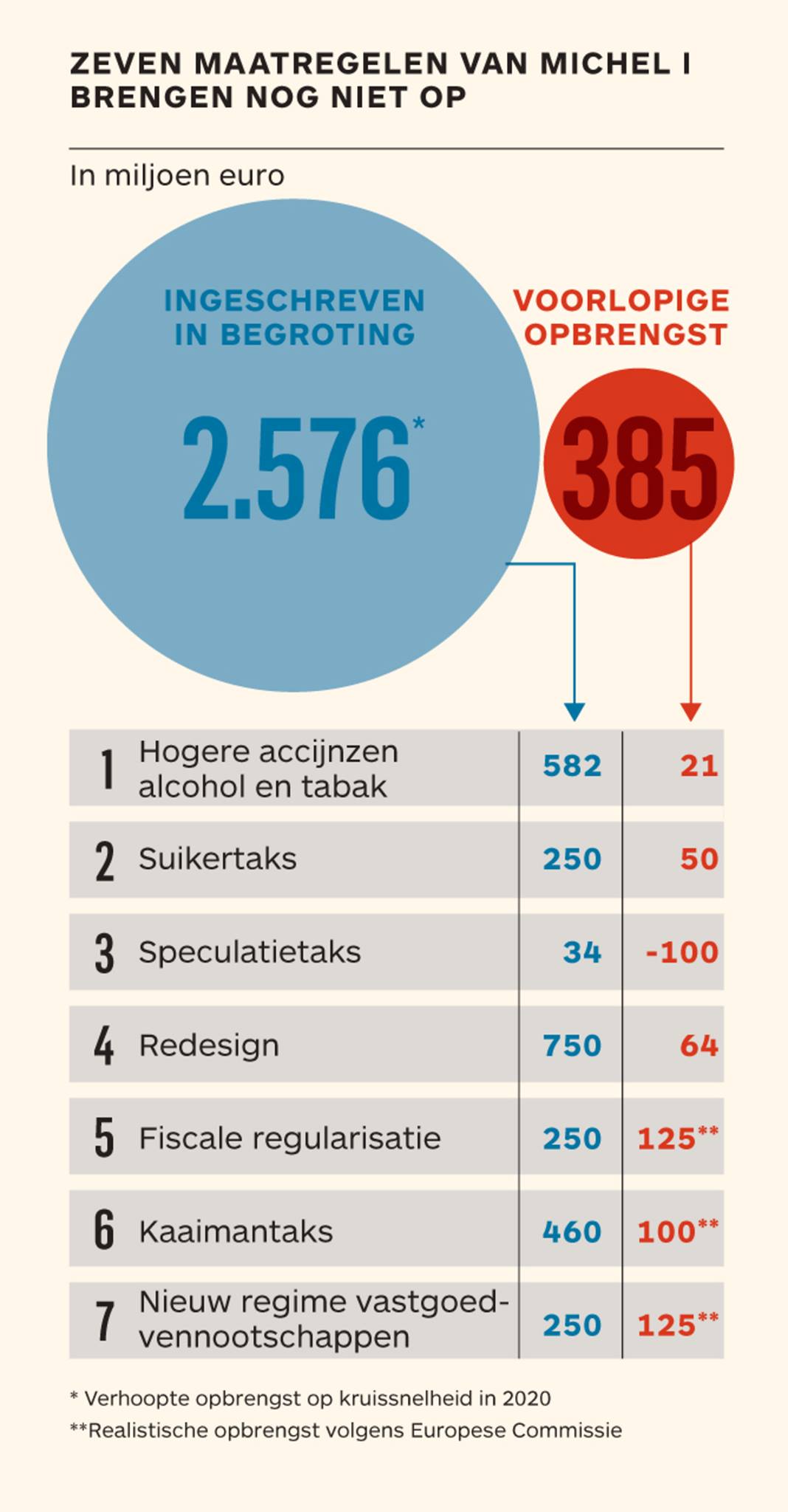Reflection on Belgian TAX stupidity
In 2015, the Belgian government under Prime Minister Michel invented a speculation tax of 33% on capital gains of shares and options if they were sold within 6 months. The losses could not be deducted (as in other countries) so this tax led to a behavioral change amongst the little stock investor. A unique tax in the world! Even politicians of the CD&V political party were doing marketing about it in the press how unique and correct this tax was. Can you imagine? The tax was estimated to generate 34 million Euro for the government. This speculation tax became effective on 1st Jan 2016.

The inventor of the speculation tax
Now we have to clearly articulate who was responsible. It was the political party CD&V represented by Kris Peeters, who wanted a trophy for their participation in the government. They sold this speculation tax to the general public as if it was a wealth tax for the rich people, but in reality it was ONLY the small investor who had to pay. Banks had lobbied to stay out of scope and you will soon understand why.
Let’s reflect one year later what happened.
What were the negative consequences of the tax?
- Decrease in stock trading
The investor in the stock market changed his behavior and in the first 9 months in 2016 trading decreased with 51%. There’s also a stock market tax (financial transaction tax) when you purchase shares and due to the decrease, the revenue of this other tax dropped with 71 million euro. The final result of this tax for the government was that this tax resulted in a 100 million loss instead of a 34 million gain. Unfortunately politicians aren’t financially accountable for their mistakes. What a pity! This leads to the fact that the government debt increases year after year instead of decreasing and that generation after generation is penalized for paying off this increasing debt.
See the seven measures of Belgian government and the overview of expected revenue and gain/loss results of the taxes. (source : De Tijd)
- The impact on the economy
Stock market broker companies reported a drop in company revenue of 30 – 40%. This resulted in less company tax revenue for the government and no additional employment for those companies. The profit of one Internet broker dropped with 84%. If there’s no profit, companies cannot hire new staff, nor invest in their own growth strategy. We are lucky that none of those companies moved abroad or went in bankruptcy.
- Unnecessary IT investments
Febelfin, the federation representing the financial sector, says that the changes to the computer programs for the calculation of this tax costed the financial sector 20 million euro. All those investments were unnecessary and lost. Thanks Kris Peeters!
- The behavior of banks
As the banks made sure that they were NOT part of the scope of this tax, they used this speculation tax to their own commercial advantage and advised clients to purchase funds (their own bank products) instead of shares. During 2016 there was a substantial increase in funds purchase. Funds are more lucrative for the bank as the commissions are between 2 – 6% on those products. I visited several banks during 2016 and each time I was advised to purchase funds of that bank. Why would I pay 2 – 6% on my money on a yearly basis for no guaranteed cash paid on my bank account, nor guaranteed capital gains? But the majority of people just follow the advice of their personal banker without understanding the cost impact on their invested money, nor understanding the product they buy, nor understanding the cash flow impact of their investment.
- IPO for risk capital
The biotech sector is growing in Belgium, but due to this speculation tax startups and biotech firms refused to launch a new IPO at the stock market. An IPO is a launch of public stock market shares available for the general public to purchase. I can’t remember any important IPO on the BEL20 stock market during 2016.
What were the positive consequences of the tax?
Although the negative impact on the economy and the Belgian stock market investor during 2016 was massive and devastating, I can also see two important positive elements.
- Social Media
Investors united themselves through the use of social media and how to avoid this stupid tax. Groups on Facebook and other social media united people on how to change their behavior and do things differently.
People learned very valuable tips from each other. Knowledge sharing was very valuable! I learned a lot from other SMART and INTELLIGENT investors.
- Trackers, CFD’s, Futures
Smart investors who were not following blindly the advice of their banks, were forced to look at other financial products. Financial products that were out of scope of this tax were trackers, CFD’s and Futures.
Personally during 2016, we invested in our own education and allocated time in learning everything about trackers. We also collected all information to learn futures in the coming years. Trackers and ETF’s are now a valuable part of my investment portfolio strategy as some trackers or ETF’s pay a nice dividend. Did you know that the majority of ETF’s have a cost ratio less than 1%? Compare that against the cost you pay at your bank if you are a funds investor. Read all about my Portfolio Strategy in our Financial Strategy.
What happened on the 1st January 2017?
Common sense has finally prevailed in the Belgian government as capital losses increased month after month and the negative impact was clear after 9 months. This negative impact was predicted but sometimes political parties focus on their own electoral gains instead of the impact on people and economy.
The speculation tax is dead since 1st January 2017. That is a fact! I hope that Belgian people will remember this stupidity during the next election and penalize the party responsible for this debacle.
Three KEY Conclusions and what you should learn from this blog post
- Learn from other people and connect through social media with other SMART investors who want to grow their money. Personally I learned a lot from other investors on how to do investments differently during this 2016 period.
- Invest in your own education. As I knew funds advised by banks were going to cost me money without any cash flow, I invested in my own education learning all about Trackers and ETF’s. Now they are part of my portfolio strategy.
- Learn and create different strategies to grow your money. Don’t think by putting money on a savings account at 0,11% will grow your money. Don’t be dependent on one strategy. Make your money work for you using multiple strategies and don’t say you can’t learn this. Anyone can learn this! Then let your money work for you!
Good luck with your personal Finance Strategy and Education while making your money grow!

Invest time in your Financial education

No Comment
You can post first response comment.